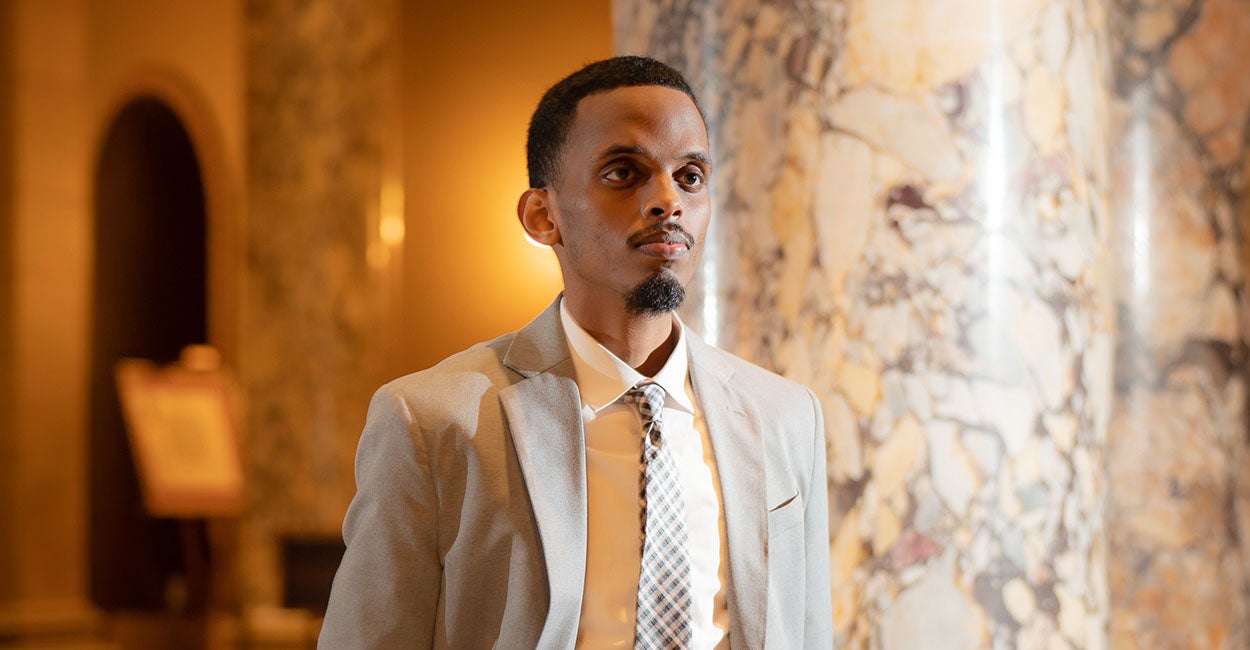(0:00 - 0:27)
After Bill C-63 died due to Trudeau's proroguing of Parliament late last year, we breathed a sigh of relief. C-63, the Online Harms Act, would have criminalised offensive speech and imposed heavy fines and even jail sentences for saying anything that our liberal totalitarian government didn't like. And it would even have allowed for anonymous complaints, suspending your legal right to face your accuser in court.
(0:28 - 1:00)
In short, it was yet another attempt to silence all dissent in Canada to the globalist-led liberal government agenda. But of course, they're not going to give up that easily. Three new bills have been tabled in the House recently.
Bills C-2, C-8, and C-9 together, if passed, will turn Canada into a police state. And it could happen as early as the end of this year. Two of those bills have already passed second reading.
(1:01 - 1:39)
These bills would allow for warrantless searches of your property, including your email and cell phone, ban you from the internet if they don't like what you're saying or who you associate with, and expose you to prosecution for hate speech, without ever clearly defining what hate speech is, which means it will be whatever they say it is. To add to that, the Liberals are talking about resurrecting Bill C-63. John Carpay is the president of the Justice Centre for Constitutional Freedoms, Canada's top legal organisation that is fighting for our charter rights.
(1:40 - 3:28)
He joins me in the studio today to reveal the details of these bills, the extreme threat to our rights and freedoms if they pass, and what you can do to stop them. John, thanks for coming in again. Glad to be with you Will.
I think at this point in time, you have the reputation of being the guest that I've interviewed most frequently, partly, of course, because of your position as the president of the JCCF, and partly because of all of the shenanigans that have been going on in this country for the last few years. And they're at it again with bills C-2, C-8, C-9. Recently, you put a short video up on social media, only a few minutes long, explaining what these bills are, what the threats are to us, and between your various social media accounts, you get half a million views, which is fantastic, but out of a country of 40 million people, that's still a very small number.
We need more people to know, so thank you for coming in, so that hopefully some of my viewers will pick up on this and share it as well. So let's get into that. Let's start with those bills, and in any order you want to address them, John.
Might as well do them numerically. So we'll do C-2, C-8, C-9, and then Bill C-63, the Online Harms Act, which died before the April 2025 election, but there's serious talk of bringing it back. So definitely that one is really bad, but numerically.
So Bill C-2, kind of do the tip of the iceberg only. It's 140 pages long, which makes it next to impossible for Canadians to, even people working full-time in public policy, it's hard to wrap your head around 140-page piece of legislation. But it criminalises the use of cash in amounts of 10,000 or more.
(3:28 - 4:10)
It gives Canada Post the authority to open letter mail without a warrant. It creates a new piece of legislation called the Authorised Access to Information Act, which allows the government to demand information from and demand to inspect the computers of anybody who is an electronic services provider. Now, when you look at the definition of electronic services provider, it is anybody who sends out emails, right? So you, me, you know, what, 90 something percent of the adult population of Canada, that's anybody using email, you are an electronic services provider.
(4:11 - 5:44)
So it creates a whole new army of non-police federal bureaucrats that are authorised to inspect your computer, inspect your phone. Bill C-2 also authorises the government to demand subscriber information from companies like Telus, Rogers, and so on, and IP addresses. And all of it is, it's a massive expansion of warrantless searches.
And that's very dangerous because in the last 158 years of Canada's history, we've generally struck a good balance between protecting the privacy and property rights of individuals and allowing police to do their work. And the balance is struck by way of a warrant. So generally, starting point is we have privacy rights and your home is your castle and police can't bust in.
Nobody can bust into your home, not even the government, except if they get a warrant. So if they say, well, we think that, you know, let's say Mark Smith is trafficking child pornography. The police can go before a judge with an affidavit and they can say, we've done, we have good reason to believe that Mark Smith is trafficking in child pornography.
We want a warrant to bust into his home unannounced and seize his computer. And the judge would grant that. They get a warrant to violate the privacy rights and the property rights of Mark Smith, but it's a warrant for one person for one purpose.
(5:44 - 7:23)
Okay. So it's really, when you get this expansion of warrantless searches, that is the essence of the police state where the police just says, Hey, I want to see your cell phone right now. And it's like, I don't need, you're an electronic services provider.
I don't need a warrant. That's the kind of society that C2 is going to get us into. Now let's start that you go through these in order of concern to, at least in what I think would be an order of concern to the viewers.
And that is, let's start with that one. Their ability to just simply walk into anybody's home, demand access to your system, your computer system, your phone. What is their supposed justification for doing this? Protect you, keep you safe.
Make it illegal for you to donate $10,000 cash to a charity, even if it's broken apart. Okay. So if you donated $1,000 cash to the Justice Centre once a month, then with your October donation, your 10th donation of $1,000, you'd be breaking the law.
Well, this is supposedly to keep us all safe from money laundering and from organised crime. So we got to restrict the use of cash, which is dangerous. Canada Post able to open letter mail without a warrant from the court.
That's to keep you safe. You know, there's bad guys out and about, and there's bad people doing bad things and the government's going to protect you. So in order to protect you, we need to be able to open your mail without a warrant, inspect your computer without a warrant.
Right. Safety, safety, safety, safety, the safety and security, the dreaded SS. And I've seen them at play for a very long time.
(7:24 - 8:24)
And it's just getting worse. It's all about safety, security. And some Canadians, unfortunately, they'll accept, they'll surrender any rights and freedoms as long as they're promised safety and security.
Yes, they will. So I think that the surveillance of our mail, the surveillance of our electronic systems is fairly obvious because that's been going on for years. I mean, back in 1995, Bill Gates launched Internet Explorer for free because he knew full well that this has been a great way of collecting data on the users.
And so now that's what the government's doing with checking our mail, with being able to check our electronic devices. They can surveil us. They can watch everything we're doing.
And I want to talk a little bit more about that $10,000 limit though, because that I think ties into CBDC's digital money. What they're doing now is they're not saying, well, you couldn't donate more than say $10,000 to the JCCF. But if you do, it has to be in the form of a check or something that they can track.
It can't be cash. Check for e-transfer. That's right.
(8:24 - 8:29)
Wire transfer, credit card, debit. Yeah, whatever. But yeah, but not cash.
(8:29 - 9:15)
Right. And the scary thing about it is they can reduce the limit because practically speaking, some people will argue, and I think this holds a lot of water. You know, it's not that often that people, maybe when you're buying a used car from somebody, you're dealing in cash, but most of our transactions aren't cash.
The justice centre has never had a $10,000 cash donation. Okay. So technically it's true.
It's not going to have a huge impact on people, but it's a step in the wrong direction. It's a step towards central bank digital currency because once it's 10,000, then it becomes 5,000. Well, you don't need to use cash for a $5,000 transaction.
You know, nobody carries $5,000 of cash around with them. And then it becomes a thousand. And then finally you're down to a hundred bucks.
(9:15 - 13:28)
You can spend at a garage sale, you know, and then it's zero. And then all of our money is controlled by the government because our money consists of numbers on a computer. It's all electronic.
And then you get totalitarianism that makes lockdowns look like an absolute cakewalk. Yes. Because of course, once it's all digital, it can all be controlled by an AI, which can track what you bought, where you bought it, and can cut you off if they don't want you buying any more of that particular.
You bought too much meat or you bought too much gas for your car. Or, I didn't like your Twitter post that you put up yesterday. And so I'll still let you buy groceries, but you're not travelling.
Travel is not a right. It's a privilege. And if you're a well-behaved, good citizen, and you don't put evil things on your X account, like what you do all the time, Will, right.
Then, you know, we'll allow you, we'll magnanimously allow you to travel if you're a good boy and you're well-behaved and you don't put bad things on your social media. Right. Now, you said you wanted to go through these numerically, but when you did your post online, you did C9 first and then C8.
I think there was a reason for that. Which one of those do you want to address now? Well, let's just go into C8. C8, again, just tip of the iceberg, gives federal cabinet ministers the power to kick you off the internet on the pretext that if the Minister of Public Safety thinks that there is a threat, which is not defined, a threat to Canada's telecommunications systems, he can issue a demand to a telecommunications service provider, which is any company that provides you with internet or phone.
He can order the company to kick Will Dove or John Carpay off of the internet. Now, if the minister was joining us and was sitting here and could contribute to the discussion, he would say, oh yeah, but that's not going to be based on internet content. It's not, we would never, ever kick a Canadian off the internet because we disagreed with what they were saying.
This is about if you, we would only use this power if, if we had good reason to believe that you are a cyber terrorist, that you are a hacker, you are working for a foreign state actor, only in that situation would we ever kick somebody off the internet. Well, now we're into the realm of good intentions. Like we would never freeze your bank account or we would never turn you into a second-class citizen for not taking a certain injection.
So the legislation itself doesn't have any safeguards. It just says, if the Minister of Public Safety thinks that you are a threat to Canada's telecommunication systems, then he can order the company to kick you off the internet. So you suddenly find yourself without phone access, without internet access.
Maybe you're married and your wife can help you out in some ways, or maybe you have some friends, but you yourself are cut off, right? Just like that. And that order can be secret. So the order itself can say this order is to remain secret.
So you can't talk about it to anybody. And if you violate the minister's order, you can be liable to penalties of up to $50,000 per day for each day that you violate the order. If you're a company and you want to disobey the minister and say, well, we're not going to kick somebody off the internet.
Say, okay, fines up to 15 million per day. 1.5 million per day, I believe. Was it not? Let's say it's 1.5 million, not 15 million.
I took notes on what you said. 1.5 million for companies, 50,000 per day for individuals. Still pretty scary though.
It's not pretty scary. It's ridiculous. It's insane.
(13:29 - 14:12)
Well, it's evil. Yes. It's not crazy.
So the penalties are so high, there's going to be compliance, right? Because if you're running a business, you're not going to take a risk of getting fined 1.5 million. So that's C8. Bill C8 gives federal cabinet ministers the power to kick individual Canadians off the internet, make the order secret.
And your only recourse then is you can go to court and sue for a court order to overturn the minister's ruling against you. But for that, you need a hundred thousand dollars spare cash on hand to spend on litigation. And the court action would take you two or three years and there's no guarantee that you'll win.
(14:13 - 14:26)
Right. And they like to say that, well, we would never do this on the basis of content. Well, how many people in this country have been arrested now because of things they posted online? And it's happened, not as bad as it's been in England, but it's happened.
(14:26 - 14:31)
So that ties us into right into C9, the hate act.













